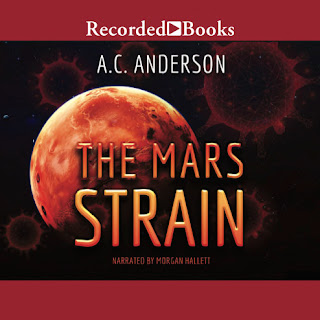
The audiobook of BRIGHT FAMILIAR is now available! And GREY MAGIC in audio will be out very soon!!
This week at the SFF Seven our topic is: Being a full-time writer – is it your dream? How do you pay for life and write, too?
In this instance we're defining "full-time writer" as someone who doesn't have a day job or other paying occupation that competes with writing. Most of us - unless we marry money or inherit a trust fund - continue to work jobs even after our first books are published. Sometimes for a LONG time after that. For myself, I continued to have essentially two careers for just over twenty years after my first publication.
I worked in environmental consulting while all the while carving out time and energy to write. I kept waiting for my writing income to match my day-job salary - even not figuring in benefits! - and it never got there. Eventually life made the decision for me: my primary project got axed, our team dissolved, and I was laid off with decent severance.
And, as it was absolutely my dream and my goal, I made the decision to try to have only one career at that point.
It hasn't been easy! KAK's post from yesterday about being exacting with a budget is super important. This is especially true if, like her, you have only yourself to count on for income. Or if, like me, you are the primary breadwinner for your family. When authors give advice on managing finances as a full-time writer, it behooves you to pay attention to what other financial help they have. It might not be a trust fund, but having a spouse with a steady salary (and benefits!) goes a long way. Other authors live on retirement income or other, similar sources.
So, how have I done it?
1) Meticulous budgeting.
As much as I can, I budget a quarter at a time. Writing income is volatile and, unless you're making buckets of it, you can't count on being able to pay the bills with income from a single month as you can with a regular paycheck. As KAK mentions, you can't figure your disposable income by simply subtracting your expenses from that month's income. You may need that "leftover" money for next month, or the month after. The financial gymnastics require creativity and flexibility.
2) Tracking sales
Data is everything! You can't afford to be only a dreamy creative. You have to wear your business hat and crunch the data from your royalty reports. You have to be ready to be stern with yourself and pay attention to which efforts generate income and which don't. You may find you can't afford those passion projects if your writing is what puts food on the table. OR, that you can afford them only if other projects are paying the bills.
3) Self-Publishing
If writing income is volatile, then income from traditional publishing has the lowest evaporation temperature. It comes, it goes - often on an annual or semi-annual basis. Quarterly is likely the most frequently you'll get paid, and every royalty check is a surprise! Again, unless they're cutting you BIG checks, it likely won't be enough to live on. This is why so many trad-pubbed authors also teach or have other side gigs. Self-publishing provides monthly income. Yes, it fluctuates, but you can also track sales and predict how much money will arrive in two months. Taking the surprise out of the equation helps immensely! You're also not subject to the whims of traditional publishing on a number of levels.
Those are three practices that have helped me manage a career as a full-time writing with essentially no other income. The other, quite obvious step, would be to make buckets of money and never have to think about budgeting again.
Maybe someday!











